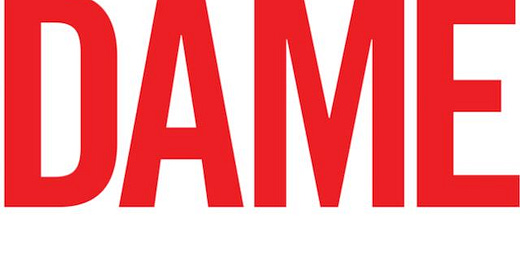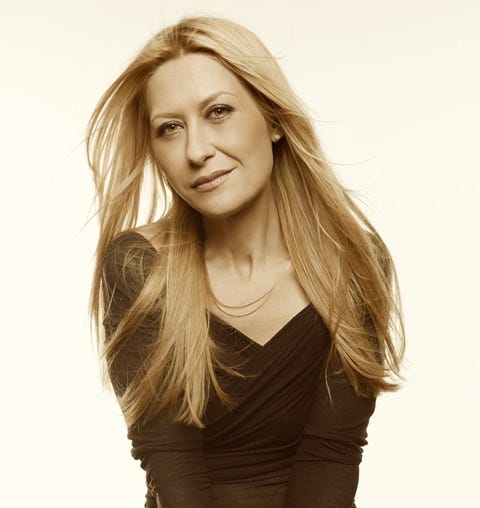The Need to Speak Out
A conversation with Jennifer Reitman from DAME Magazine about the passion that drives us to use our voices, even if we're not sure who will listen.
Good morning and Happy Mother’s Day to all who celebrate!
Welcome to the Quarantine Creatives newsletter, a weekly companion to my podcast of the same name, which explores creativity, art, and big ideas as we continue to live through this pandemic.
If you like what you’re reading, you can subscribe for free to have this newsletter delivered to your inbox on Sundays:
The Power of Conviction
One of the things that I love about being a parent is being exposed to films, music, and books that I might not have otherwise discovered. The efficiency of a children’s book can be magical. Children's authors convey an idea in a few dozen words that may take 300 pages for a book for adults to get across.
One of the titles that made its way onto our shelf a few years ago is the beautiful, motivating, and succinct Say Something by Peter H. Reynolds, which encourages kids to express themselves and use their voices for good. It might be standing up to a bully, making art with paint on a canvas, or planting a garden.
One of my favorite passages from this book goes like this:
“Sometimes you’ll say something and no one will be listening.
But keep saying what is in your heart and you will find someone who listens.
Keep saying it and you may be surprised to find the whole world listening.”
This book has been on my mind this week as people across the country have turned out to protest the potential overturning of Roe vs. Wade by the Supreme Court. But even before that news broke, I was thinking about the power of conviction as I spoke with Jennifer Reitman on the podcast.
Jen is the founder and publisher of DAME Magazine, an online publication owned, run, and almost exclusively written by women. I stumbled upon DAME a few months ago through Twitter and have been a devoted reader ever since. I have even cited some of their columns in this newsletter (like here and here).
While working in the publishing industry in the 1990s, the idea first came to Jen that there was a niche for a smart women’s publication:
“There was nothing that was kind of like Esquire for women, kind of fun, irreverant, great long form journalism, some fast paced stuff, some lifestyle. It’s all beauty tips and fashion tips, where’s the hard core, long form reporting?”
Jen felt so passionately about the idea that she was willing to put up her own savings to help fund it.
Her hope was to launch a print magazine in 2008, but the Great Recession prevented that idea from getting off the ground. DAME launched in its current form as an online magazine in 2014 after Jen sold her house to keep the company going.
One of the things that I have really responded to as I read DAME is that many articles are written in a subjective, first person point of view. Writers are encouraged to tell stories that lean into their experience and biases.
This style of writing is forbidden by many outlets where the focus is on trying to be as objective as possible. Jen explained how that can hinder good reporting:
“With traditional media, papers of record, I think there’s this very set imagined way of this is how we do things, and this is why you see the criticisms of both side-ism and using flat language. Bias is real, journalists are people, and I don’t care how objective you are, you’re always going to bring some personal view into it.”


DAME also sources incredible writers. They accept pitches and editors also suggest writers that they think may be good for a certain topic. But Jen also told me that she is always on the lookout for new talent:
“Sometimes, honestly, I find them on Twitter. Sometimes they’ve never written a thing. One of our columnists, Kaitlin Byrd in particular, but this has happened a few times, I will see a thread and I’ll go, God, you’re a really good thinker, and the way you’re writing this you also would probably be a good writer. Why don’t I reach out.”

I cited one of Kaitlin’s columns in a past issue of my newsletter and her latest piece is really a must read. It’s about the Supreme Court leak on the surface, but it’s also about time, our understanding of history, and how we view ourselves in that context.


As a man, I am not alone in my appreciation for DAME’s particular style of writing. Jen tells me that the readership of DAME is close to 40% male. Jen is aware of her male audience, but thinks featuring female writers is an important hallmark of her brand:
“For us it is about publishing features and columns that, while they do impact everybody, the language and the narrative and that point of view needs to be expressly by a woman because the framing is important.”
Jen and I happened to speak a few hours before the leak of the Supreme Court decision, so we didn't touch on that specific issue in the podcast, but we did speak at length about the importance of standing up on important issues and not losing faith in the power of our voices:
“Progress is always possible. Always. And the best way to stay motivated is to actually do something. Doing something actually can be very hopeful. Activism is one of the best ways to feel better about the world we live in because you know that you’re contributing in some way.”
I was struck by how Jen really represents the idea of using your voice for good. She saw a need, felt passionately about how to fill that need, and was willing to put her own money on the line to make that passion a reality.
She used her voice. She spoke, not sure if anybody was willing to listen. The more she’s talked, the more people have listened.
Or as Peter Reynolds says at the end of Say Something:
“Your voice can inspire, heal, and transform. Your voice can change the world.
Are you ready to say something?”
If you missed it, you can listen to my interview with Jen here or on your favorite podcast player. We also discussed dealing with the exhaustion that many readers feel from the news, the role of social media and self-publishing platforms on our information ecosystem, and much more.
This article has been updated to reflect that Jen used her savings to launch the company, but then sold her house to keep it going.
What Do You Think?
How does bias affect the news we read? How do we encourage and foster diversity in the newsroom? What’s the future of independent media like DAME? Leave a comment and let’s start a conversation!
Related Reading
If you’d like to catch up on past episodes of the Quarantine Creatives podcast, they can be found on Apple Podcasts, Spotify, or wherever you listen.
Please consider sharing this with a friend that you think might enjoy it, or better yet, share it on social media so you can tell hundreds of friends!
If you’ve missed past issues of this newsletter, they are available to read here.
Stay Safe!
Heath






